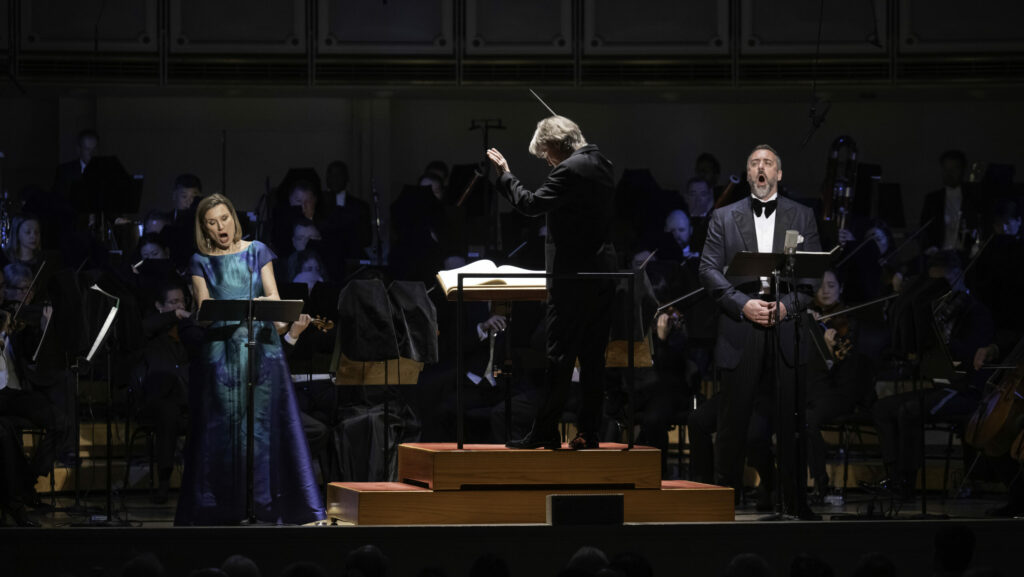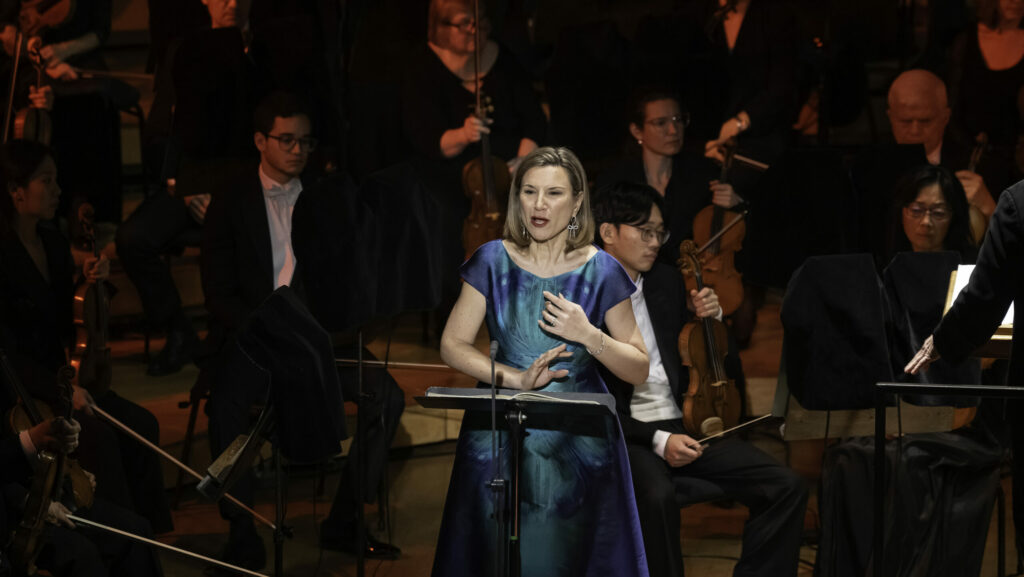
Amy Aiello Photography
The basic premise–a newlywed couple on their wedding night–mutates into a macabre narrative whereby the overly-curious Judith pushes further and further behind bloody thresholds in search of the arcane only to join a silent entourage of Bluebeard’s previous wives. To hear it described by McClary, Bluebeard’s Castle is a warning for all inquisitive women who venture too far from acceptable boundaries. This is to say that at eighteen years old Bluebeard’s Castle seemed like a strange, if not also sexist, psychological thriller. The Chicago Symphony Orchestra’s recent production of Bluebeard’s Castle owes much of the success in capturing that sense of morbid curiosity to the polished talents of the bass-baritone Christian van Horn (Bluebeard) and the mezzo-soprano Ekaterina Gubanova (Judith).
There was really only one slight hiccup in the program. The opera was billed with Beethoven’s Second Symphony. Yes, the transition from such a pastoral juvenile Beethoven to a dark symbolist work brought about a pointed tone shift, but I couldn’t help but feel that this detracted from the opera. By the time the orchestra finished with the final Allegro molto, the atmosphere felt primed for some Gilbert and Sullivan operetta.
And let’s be honest, Bluebeard’s Castle is not revered for its cute text or charming melodies. There are no arias, and the vocal writing is dominated by speech-like rhythmic patterns. A concert staging such as this one only works if you have compelling singers who can not only tackle the Hungarian but also rise above the dense orchestration. Esa-Pekka Salonen provided us with a brawny pacing and athletic conducting approach.
For anyone in the Chicago area who was able to catch Van Horn’s 2022 appearance in Verdi’s Ernani at the Lyric it will be of little surprise that he performs a beguiling Bluebeard. It’s hard to imagine a better fit for the conflicted Duke with Van Horn’s unflinchingly virile performance and signature vocal power. Gubanova’s dark core sound was lovely, and she presented a deeply haunting Judith, not to mention the many moments her acting abilities rose above the dramatic constraints of the concert setting. Early on the Orchestra began to overpower the singers such as the fifth door, when Judith insists on opening the doors to let the light in–unfortunately obscuring Gubanova’s voice in this climactic point. These balance issues occurred more than I would have liked throughout the performance, but I suppose if there’s any clientele that would appreciate an orchestra-forward opera it would be at the Symphony Center.




